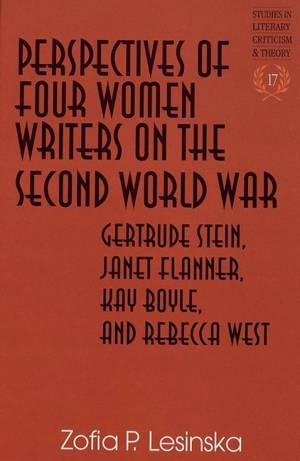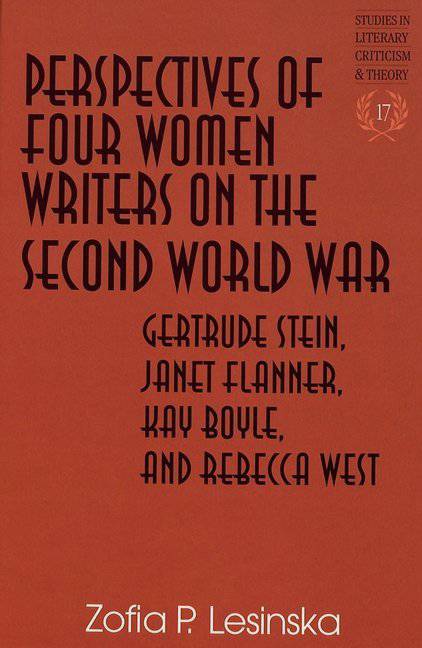
- Afhalen na 1 uur in een winkel met voorraad
- Gratis thuislevering in België vanaf € 30
- Ruim aanbod met 7 miljoen producten
- Afhalen na 1 uur in een winkel met voorraad
- Gratis thuislevering in België vanaf € 30
- Ruim aanbod met 7 miljoen producten
Zoeken
Omschrijving
In their writings composed during the Second World War and the political turmoil of the 1930s in Europe, Gertrude Stein, Janet Flanner, Kay Boyle, and Rebecca West interrogated the limitations of political history with its exclusionary emphasis on diplomacy and military campaigns. All four women writers underscored the indivisibility of social, cultural, and political histories. In addition, prompted by their empathy with people in occupied countries, they narrated history from the standpoint of the non-victorious, a perspective that has rarely been articulated by American and British authors. The challenge that these authors posed to traditional notions of history anticipated insights expressed several decades after the war by social, feminist, and postcolonial historians.
Specificaties
Betrokkenen
- Auteur(s):
- Uitgeverij:
Inhoud
- Aantal bladzijden:
- 189
- Taal:
- Engels
- Reeks:
- Reeksnummer:
- nr. 17
Eigenschappen
- Productcode (EAN):
- 9780820461038
- Verschijningsdatum:
- 24/09/2002
- Uitvoering:
- Hardcover
- Formaat:
- Genaaid
- Afmetingen:
- 160 mm x 230 mm
- Gewicht:
- 409 g

Alleen bij Standaard Boekhandel
+ 158 punten op je klantenkaart van Standaard Boekhandel
Beoordelingen
We publiceren alleen reviews die voldoen aan de voorwaarden voor reviews. Bekijk onze voorwaarden voor reviews.











